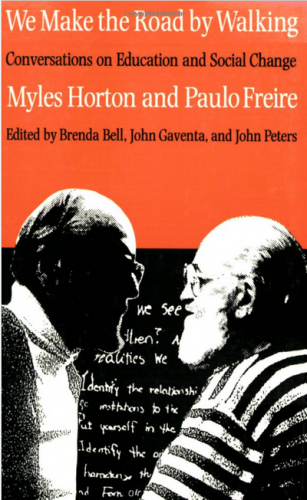(this post is cross-posted from #Antigonish2.com)
***
In March, a woman I didn’t know sent me an email, with an idea.
I knew her name, her Twitter handle, and that she lived in the UK. And I knew she’d signed on early to Antigonish 2.0, as a member of Layer One – our network layer (you can sign on too on the sidebar to the right, AHEM).
Her email suggested we try a 4-word story Twitter chat, along the lines of an initiative some mutual friends of ours had done with #DigPed awhile ago.
I remembered that another volunteer had mentioned we should do something on Twitter with the burgeoning community…to give people the opportunity to chime in, share ideas, see each other. I figured…well then. There it is. Our next step.
When you’re trying to start a project off the side of your desk, other people’s ideas – especially ideas those people are willing to lend actual support and amplification to – are a gift.
So I asked the network for 4-word stories of community. All day long, Friday March 31st.

Our network is currently has 135 official sign ups, and is probably about twice that size in terms of ambient interest expressed via social channels. We live all over, on four continents thus far, and in about ten time zones. Conventional one-hour Twitter chats don’t always work well for a group that dispersed, and I’ve founded extended chats to be gentler, less overwhelming ways of bringing new tweeters and new community members into a conversation.
Why community as the topic?
Of the three pillars of the Antigonish 2.0 theme – Media Literacy | Community | Citizenship – it’s community that’s core to anything this project eventually becomes, or builds. Antigonish 2.0 is about community capacity-building across networks, institutions, and localized community circles, to address our current polarized information ecosystem…and society. Media literacy is simply a lens, a critical tool for beginning to look at the division and spectacle that are the hallmarks of that ecosystem…and society. Citizenship – both in digital and nation-state terms – is a fraught and complex concept in any globalized conversation…and one that needs to be foregrounded in an era of closing borders and fear. But it is community – in all its tensions and possibility – that will be the engine that either makes or breaks our efforts here.
Layer One of Antigonish 2.0 – the network – needs to be as much about community as Layer Three – the “actual” community layer. Particularly in the absence of, y’know, pay and hierachy and prestige structures. What community can offer is belonging, and support, and a sense of capacity to contribute. A sense that something’s happening that’s bigger than any individual, and an opportunity to tap into energy that’s bigger than any of us, either.
That energy came out in full force Friday.
I’d initially planned to Storify the archive, but when we passed 700 tweets & retweets (and Twitter’s new visual notifications looked AWFUL in Storify format) I decided just to direct folks to the actual hashtag in all its richness. Seriously. Check it out.
Overall, more than 200 people contributed – many completely unknown to me until Friday – and while there was more amplification than extended or in-depth conversation, there were healthy critiques of idealized versions of community and a genuine enthusiasm that made me confident the time is right for what we’re doing here.
A few highlights to share:
First, a dataviz glimpse of some of what the chat looked like by Friday evening (thanks to Autumm Caines & Daniel Lynds who both did great visualizations of the chat) – you’ll notice I’m still a far-too-big node in the centre. But that’s normal for a first conversation in an emergent community with one identifiable core member. As we do more of these – and we will – I expect new hubs and threads will decentralize and distribute the conversation. But for the moment, this kind of coming together is powerful and kinda beautiful.


And in lieu of Storify, a few contributions – too few – among the MANY worth sharing here. One of the strengths of the #4wordstory constraint – and Twitter in general – is that it forces an a poetic rather than prosaic approach; a form of thinking that demands engagement on more than a single level.












Thank you. To everyone who shared, or hearted, or re-tweeted. Or just followed along. Thank you for getting us started, helping us get a sense of who we are, together. And if you missed it, it’s never too late. ;)
***
My own final #4wordstory contribution, which never got tweeted as it came to me as I fell asleep Friday night, full of appreciation for an extraordinary day and the woman I didn’t know (but do now, thanks to her idea):
the colleagues we need
for work that calls
#Antigonish2
(Yeh, that’s kinda eight words. Call it poetic license). ;)

 In exchange for keeping Slovak workers out the war effort, they agreed to deport their Jewish population, whose roots in Slovakia went back 500 years. In the deal, the “
In exchange for keeping Slovak workers out the war effort, they agreed to deport their Jewish population, whose roots in Slovakia went back 500 years. In the deal, the “